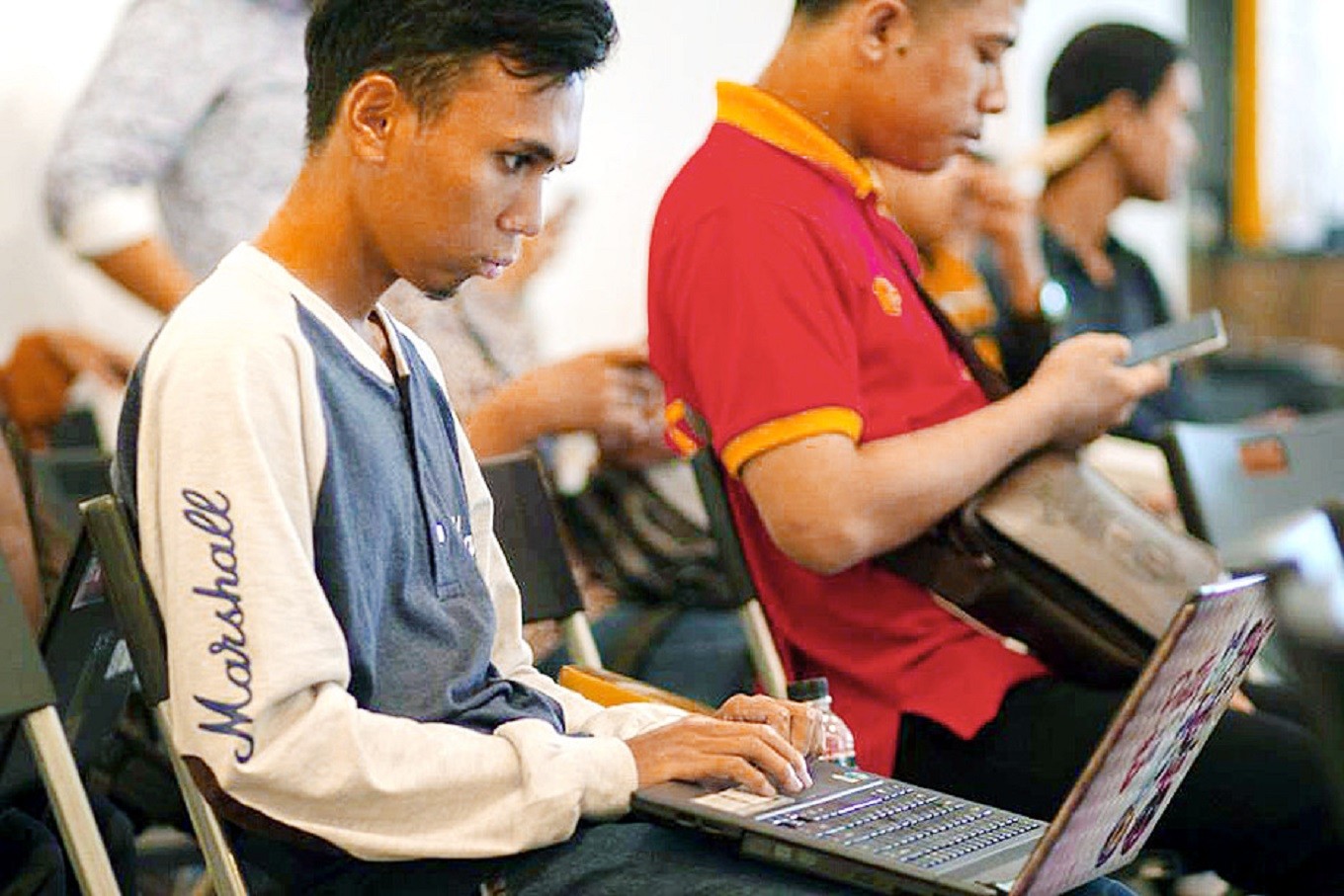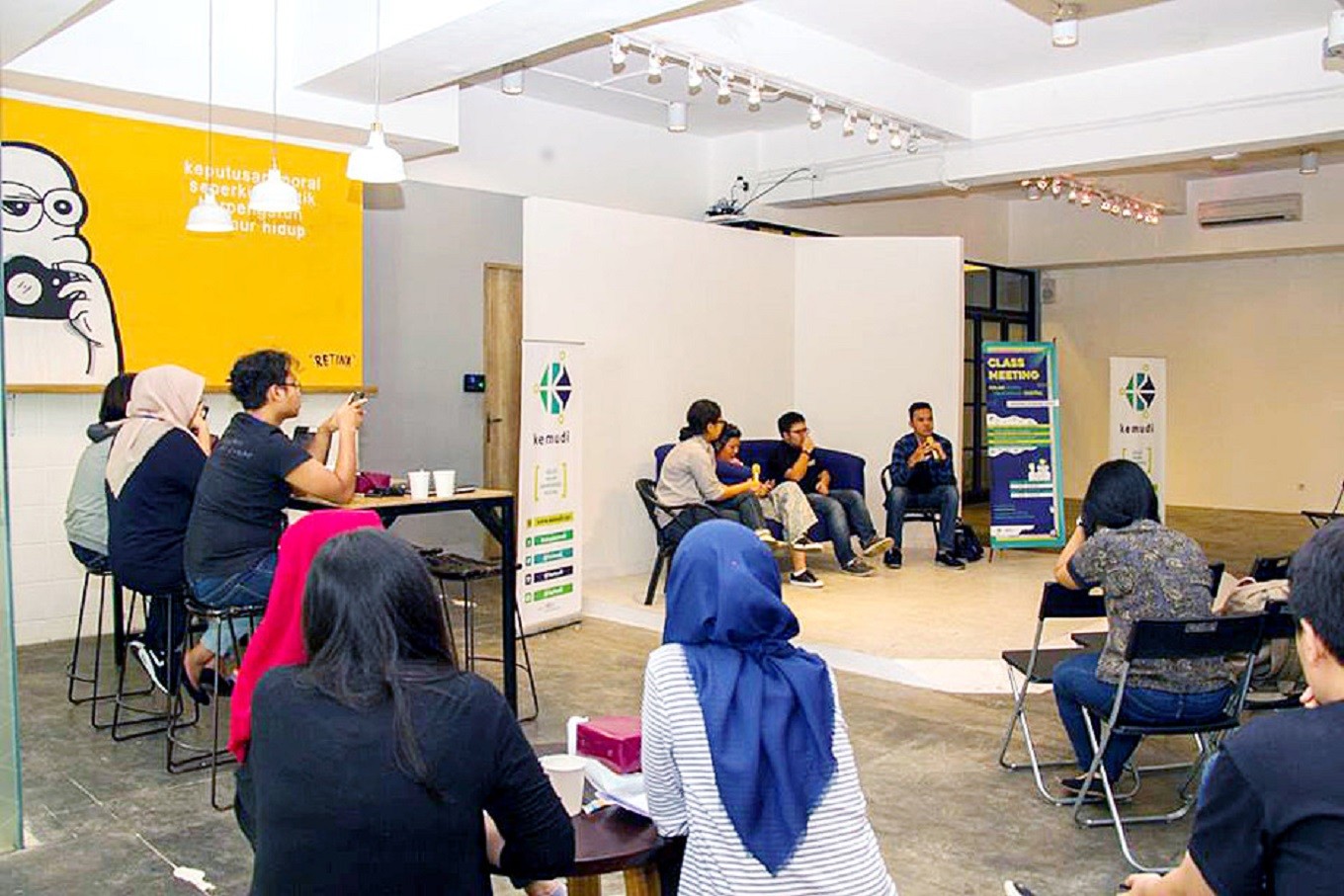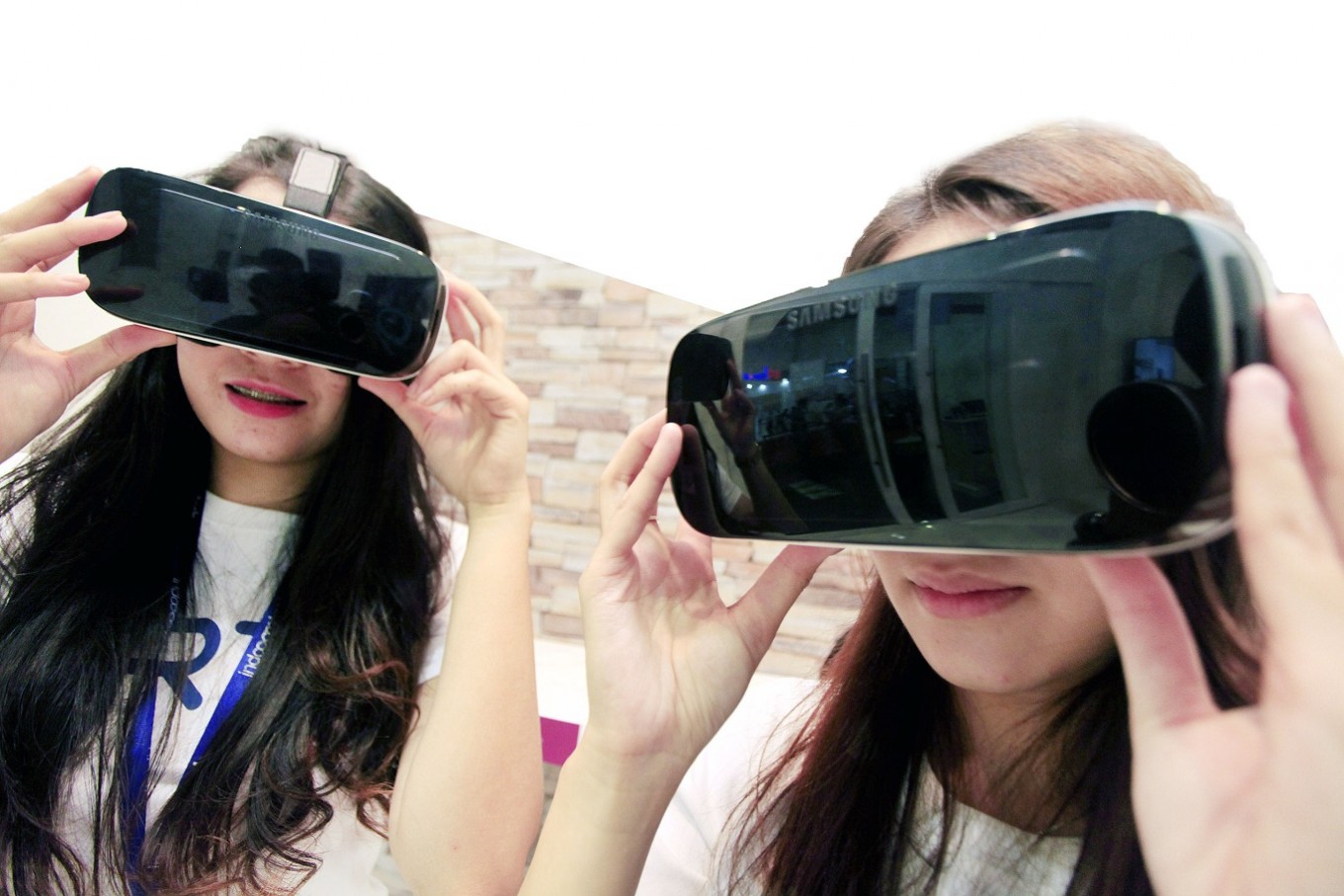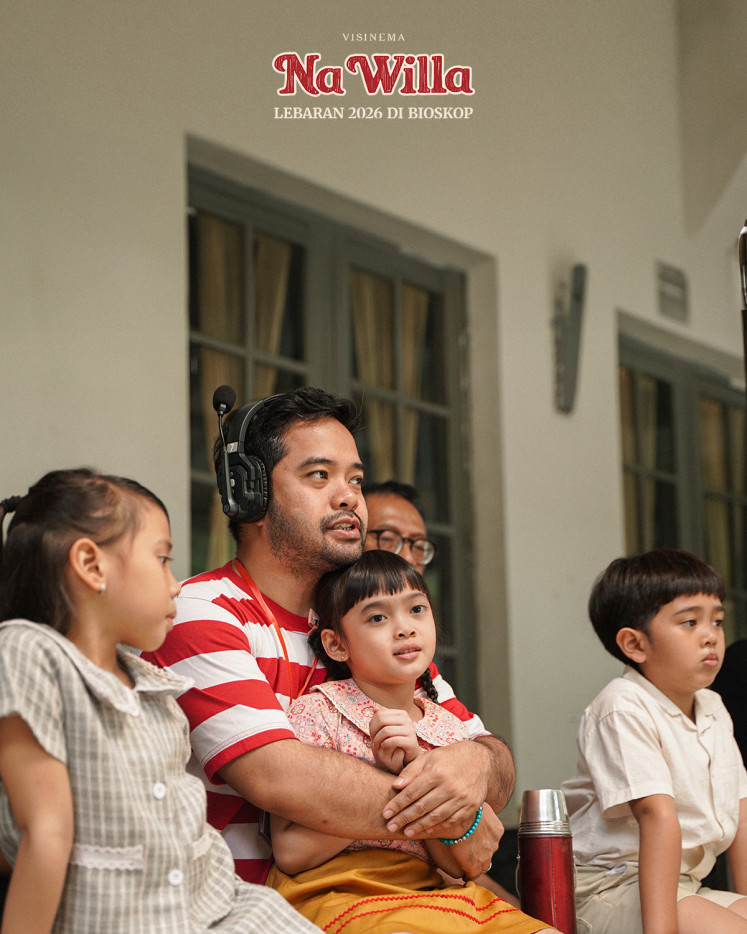Popular Reads
Top Results
Can't find what you're looking for?
View all search resultsPopular Reads
Top Results
Can't find what you're looking for?
View all search resultsDigital literacy for all
A movement is being set up to improve digital literacy among young Indonesian internet users.
Change text size
Gift Premium Articles
to Anyone
The internet has become an inseparable part of people’s daily lives, particularly those living in democratic countries.
Indonesia, one of the largest democracies in the world, has seen a significant spike of internet users within the last decade.
Last year’s data from the Association of Indonesian Internet Providers revealed that about 132 million Indonesians accessed the internet regularly during the first half of 2016. This figure was a 50 percent increase from the same period in the previous year.
Another set of data from We Are Social global digital statistics showed that on average, people in Indonesia spend four hours and 42 minutes and three hours and 33 minutes accessing the internet daily through their computers and mobile gadgets respectively. The figure indicates people living in Indonesia spend approximately a third of their day online.
However, most Indonesians have yet to demonstrate a strong understanding of how the digital world actually works. A significant number of Indonesian internet users are still digitally illiterate.
This situation encouraged a group of young Indonesians to set up a movement called Digital Democracy Youth Class (Kemudi) in order to improve the digital literacy of internet users in Indonesia.
 Who is the fairest of them all: A woman poses in front of digital imagery screen.(JP/Dhoni Setiawan)
Who is the fairest of them all: A woman poses in front of digital imagery screen.(JP/Dhoni Setiawan)
(Read also: Will artificial companions be our best friend in the future?)
Beginning about one year ago, the movement has taught about the internet and digital literacy through online classes that are available at KelasKita.com.
The online course material has been formulated by experts, practitioners and activists who voluntarily collaborated with the Kemudi movement. The material covers five main subjects — internet and human rights, internet for democracy, internet regulation, privacy security on the internet and digital activism for youth.
After accumulating approximately 600 class attendees, Kemudi recently held an off-line class meeting at a posh co-working space in Kebayoran, South Jakarta. It was a chance for all Kemudi members, mentors and founders to get together in the real world to discuss what they have learned so far and plan for the future.
Kemudi program manager Resa Temaputra said that while the modules and subjects had different goals and topics, eventually they all could contribute to increasing digital literacy among Indonesian internet users.
“We want users to understand what the internet is and how to use it wisely,” Resa said.
Meanwhile, researcher from Society and Culture Research Center of the Indonesian Institute of Sciences Aulia Hadi said an improvement in digital literacy would allow Indonesian internet users, especially young ones, to significantly develop strong civilian movements.
 Tech attachment: A man is glued to his computer. A significant number of Indonesian internet users are still digitally illiterate.(Kemudi Facebook Page/File)
Tech attachment: A man is glued to his computer. A significant number of Indonesian internet users are still digitally illiterate.(Kemudi Facebook Page/File)
(Read also: Facebook founder Zuckerberg says he has no plan to run for US president)
Aulia, who shared a module on digital activism during the off-line class, added that there were already a number of examples on how digital activism could translate into a concrete civil movement.
“For example, the Teman Ahok [Friends of Ahok] movement practically uses a digital platform to do what is described by [new media activist Leah A.] Lievrouw as mediated mobilization of the masses. According to Lievrouw, a mediated mobilization is an act of using a new medium to mobilize collective action of the masses for social change,” Aulia said, referring to the online movement behind the candidacy of Basuki “Ahok” Purnama for the Jakarta governor seat.
The volunteers in this movement utilized social media platforms to mobilize and coordinate with fellow sympathizers to collect one million Jakartans’ IDs as was required for the independent candidate.
Even though Ahok eventually ran using the political party endorsement ticket, the ability of the Teman Ahok movement to collect more than 1 million IDs is considered a remarkable achievement. Aulia said the Teman Ahok movement was one of a few examples of how digital activism could translate into real life and bring about Indonesian social change.
 Digital talk: A discussion session during the Digital Democracy Youth Class (Kemudi)'s recent offline class meeting at a co-working space in Kebayoran, South Jakarta.(Kemudi Facebook Page/File)
Digital talk: A discussion session during the Digital Democracy Youth Class (Kemudi)'s recent offline class meeting at a co-working space in Kebayoran, South Jakarta.(Kemudi Facebook Page/File)
Kemudi, however, said that the negative impact from the internet outweighed the positive.
Since 2008, there have been 144 Indonesians brought before the law for violating a number of clauses in the Information and Electronic Transactions (ITE) Law.
One of the most prominent cases was the one on Prita Mulyasari, who was sued by a hospital for defamation after she complained on her social media account about the services she received from the hospital staff.
Internet users, who are mostly young, have yet to understand the concept of online hate speech, cyber-bullying, online sexual predators and other online issues that can ruin their lives.
In addition, Indonesian internet users also often neglect the importance of protecting their private information and personal details from being misused by irresponsible people.
Some Kemudi members said they had learned a lot about potential dangers on the internet after joining the class.
“Students have learned to consider the consequences before they post anything online and also have developed an instinct on accuracy regarding information from the internet,” one of the students, Ariyanti, said.











